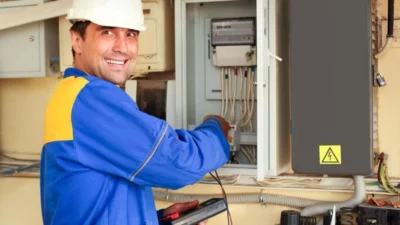More Than Just a Roof Over Your Head Your roof is your home’s first line of defense against rain, wind, snow, and sun. It protects not only the structural integrity of the building but also everything and everyone inside. Despite this, roofing is one of the most overlooked aspects of home maintenance. When problems arise—whether from age, storm damage, or faulty installation—many homeowners rush to find help without fully understanding the roofing industry. This article explores what makes a roofing company reliable, how to avoid costly mistakes, and what steps to take before hiring a contractor.
The True Cost of a Roof Replacement
Replacing or repairing a roof is one of the most significant investments a homeowner can make. But the price tag can vary wildly. While some quotes may seem like a bargain, low bids often reflect shortcuts, subpar materials, or lack of insurance. On the other hand, the highest bid doesn’t always guarantee superior workmanship. Understanding the cost breakdown—labor, materials, permits, and warranties—can help you make informed decisions and avoid being overcharged or underprotected.
Credentials Matter: Licensing, Insurance, and Certification
Before letting anyone climb onto your roof, ask to see proof of licensing and insurance. A legitimate contractor will carry both liability and worker’s compensation insurance to protect you in case of accidents. Certifications from manufacturers like GAF, Owens Corning, or CertainTeed indicate that the roofer meets certain standards of quality and training. These credentials also often come with extended warranties that can add years of protection.
Local Reputation and Experience
A well-established local roofer is far less likely to vanish after the job is done. Storm-chasing companies may roll into town offering quick fixes but disappear before you realize something went wrong. Ask neighbors or check online reviews to gauge a company’s reputation. Visit current or past job sites if possible. A local business that’s been around for years—and has a visible track record—offers more peace of mind than a flashy flyer or online ad.
Communication Is Key
From the first estimate to the final nail, good communication makes a huge difference. You should be able to ask questions and get clear answers. A quality contractor explains the process, discusses material options, and provides a detailed written proposal. If your calls or emails are ignored before work even begins, imagine what it will be like if issues arise during the project.
Knowing When It’s Time to Search for Help
Many people wait until water stains appear on ceilings or shingles start to curl before taking action. But small warning signs—like granules in the gutters, algae streaks, or missing flashing—shouldn’t be ignored. Being proactive means fewer emergencies and better financial planning. When you’re finally ready to look for help, you might type something like roofing companies near me into a search engine, hoping for instant answers. But what you really need is more than just a list—you need insights, reviews, and the ability to filter by credentials and experience.
Questions to Ask Before Hiring
Before you hire anyone, ask the following:
- Do you provide a written estimate and contract?
- What’s your timeline, and how do weather delays affect it?
- Do you offer a warranty on labor and materials?
- Will you handle permits and inspections?
- Who will be supervising the project?
If a contractor can’t answer confidently or avoids specifics, that’s a red flag. Transparency from the beginning is essential to avoid disputes later on.
A Roof Built on Trust
The best roofing job doesn’t just keep your home dry—it gives you long-term peace of mind. Don’t rush the hiring process. Take time to verify credentials, read reviews, and ask the right questions. A trustworthy roofer isn’t just skilled with shingles—they’re professionals who treat your home like their own. With the right information, your next roofing project doesn’t have to be a gamble—it can be a smart investment.

Lexy Summer is a talented writer with a deep passion for the art of language and storytelling. With a background in editing and content creation, Lexy has honed her skills in crafting clear, engaging, and grammatically flawless writing.



